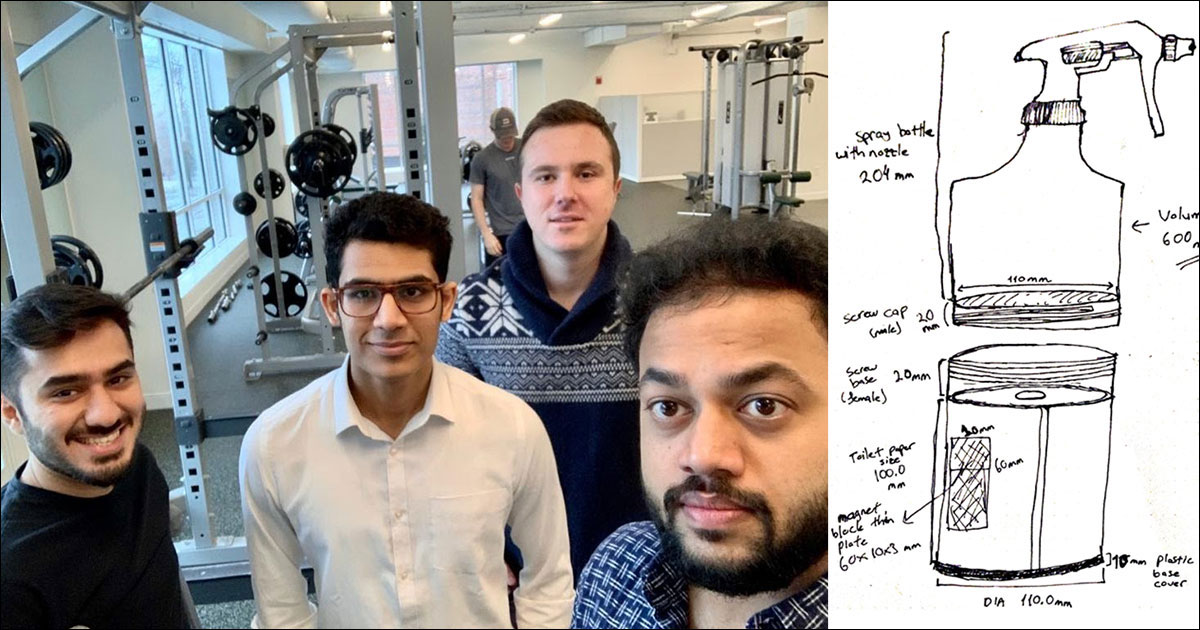Class Project Turned Product of the Future

Two team members were residing in Boston. One was in New Jersey, and another was in Turkey.
It may not be the preferred method for a group of MBA students in the middle of creating a venture as part of their course, Product Design and Development. But, like the hundreds of Babson College students doing so, and with motivation and inspiration from faculty, Akshat Khandelwal MBA’20, Sai Surya Kolusu MBA’20, Ali Cem Eyuboglu MBA’20, and Simrann Babani MBA’21 engineered and developed their fitness sanitation product, HYGYM, from around the world.
The Idea
The concept was sparked during one of Eyuboglu’s workouts at a greater Boston gym before the pandemic took hold on the United States. While training, he discovered there was no specific product available for sanitizing exercise equipment.
According to Fit Rated, exercise bikes at gyms are 39 times dirtier than a cafeteria tray. Treadmills have 74 times more bacteria than a public bathroom faucet, and free weights have 362 times more bacteria than a public toilet seat.
Through more than 60 interviews with exercisers of different ages, demographics, and professions, the team found most did not prioritize sanitation.
Their solution came through simplifying the disinfecting process with a single product. The prototype involves approximately half a spray bottle, with a paper towel holder on the bottom. And, a magnet allows the product to be attached to any metal surface.
“We need this kind of product now more than ever, because of the certain circumstances and situation we’re in,” Kolusu said.
The Shift
When the College transitioned online, HYGYM team members saw an opportunity to confront the obstacles before them, Associate Professor Victor Seidel said.
“One sign of great design teams is the ability to rally under pressure and setbacks, and even when the HYGYM team had to scatter, they maintained momentum,” Seidel said. “Different members of the team were juggling different relocation challenges, but despite it all they continued to advance their project through rapid and repeated prototyping and learning.”
Working remotely in three locations compelled the team to think entrepreneurially when it came to testing and amending their prototype. They found their answer by using a makeshift gym in one of their residences, allowing them to test and assess their product in real time, before offering feedback to each other on the collaboration tool Miro.
Beyond the Classroom
As an industry valued at nearly $100 billion, fitness facilities will certainly reopen eventually.
When that does occur, proper hygiene will be essential.
Until then, the HYGYM team hopes to continue to build awareness in regions most affected, such as Boston and New York, about the importance of disinfecting gym equipment, and will be ready to finalize the product and begin distribution when the time is right.
“They may take six months, eight months to reopen, but people are still going to go to the gym,” Khandelwal said. “People are conscious that we have to take this extra care.”
Posted in Community




